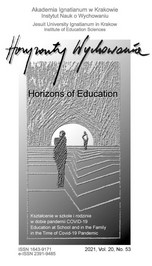The Dignity of Children Deprived of Liberty and Suspected of Committing Crimes
The Dignity of Children Deprived of Liberty and Suspected of Committing Crimes
Author(s): Kerstin NordlöfSubject(s): Criminal Law, Human Rights and Humanitarian Law, Criminology, Penal Policy
Published by: Uniwersytet Ignatianum w Krakowie
Keywords: dignity; children; liberty; crime;
Summary/Abstract: RESEARCH OBJECTIVE: In this article the research objectives are the rights of children deprived of liberty and suspected of having committed crimes in international and regional agreements as well as in Swedish legislations and intended to preserve the child’s dignity. THE RESEARCH PROBLEM AND METHODS: The method applied to study their dignity is, on one hand, in the context of international and regional agreements; on the other hand, in the context of Swedish legislations, which are relevant to these children. THE PROCESS OF ARGUMENTATION: The argument is whether in Sweden children under the age of 15 years deprived of liberty and suspected of having committed crimes are treated in a manner consistent with promoting the child’s sense of dignity during the investigation of the crime. These children are of particular interest as they are more vulnerable than adults in the same situation; the spirit of dignity should therefore be more explicitly expressed for them. RESEARCH RESULTS: The research result confirms that dignity is fundamental for the rights of children as expressed in the studied international and regional agreements and, more specifically, in the CRC Articles 37 and 40. CONCLUSIONS, INNOVATIONS, AND RECOMMENDATIONS: Swedish legislations still need improvements to preserve the dignity of children, particularly regarding the rights of children under the age of 15 deprived of liberty and suspected of having committed crimes.
Journal: Horyzonty Wychowania
- Issue Year: 19/2020
- Issue No: 50
- Page Range: 59-75
- Page Count: 17
- Language: English

